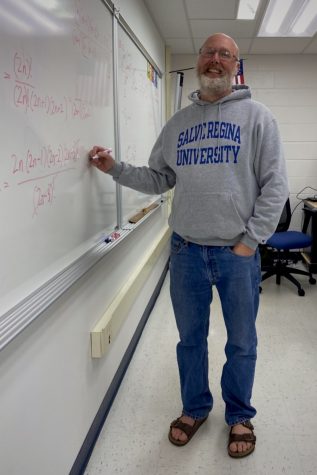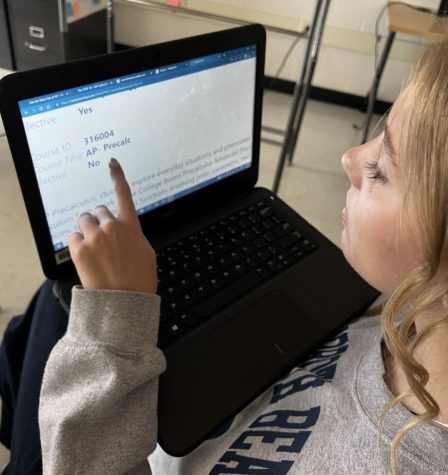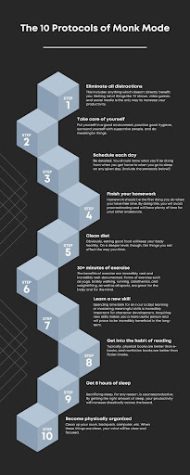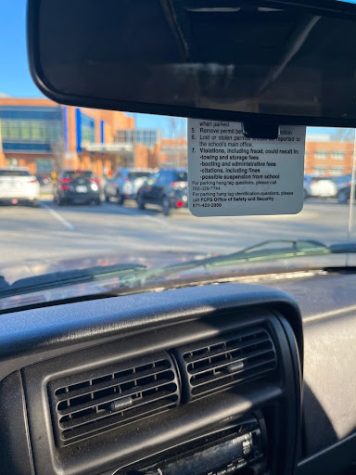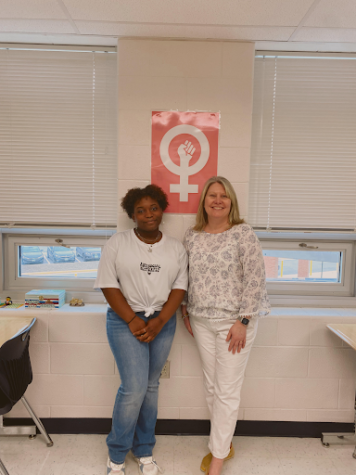Cheating or ChatGPT?

Photo courtesy of Openclipart under Creative Commons License
The recent rise in popularity of ChatGPT, an AI platform with seemingly limitless potential, is leading students to feel unclear regarding the boundaries of its use and academic integrity.
ChatGPT (Chat Generative Pre-Trained Transformer) is what is now known as a “chatbot” that was released by the IT company OpenAI. The platform made its debut online in late 2022, but has gone viral in recent months due to its easy accessibility and the various social media trends surrounding the software. OpenAI’s website refers to ChatGPT as a “conversational” platform for users to interact with. Aside from the entertaining and silly prompts people have run through the software that have gone viral on TikTok, one of the most widely talked about applications is to use ChatGPT to cheat in school. ChatGPT is able to do in depth research, write complete essays, and much more in just a few simple clicks, applications of the software that have some worried about the future of academic integrity.
“[When you use ChatGPT] you are not using your own brain. It’s not your thoughts and your opinions, it’s the entire internet combined,” said freshman Ben Harper.
As of January 2023, Fairfax County Public Schools has banned the usage of ChatGPT on all electronic devices issued by the county after there were concerns regarding cheating using the platform. However, the ban has not seemingly stopped the problem entirely.
“I think the FCPS ban on software should help prevent cheating. I also think we should teach students how to use ChatGPT and allow them to occasionally use it as a helpful tool,” said English teacher Breanna Brown. “In my opinion, banning tools outright is rarely a beneficial solution since it just makes using the tool that much more tempting.”
Students have been testing the limits as to what constitutes cheating using the software. In a recent Study.com survey regarding cheating on schoolwork using ChatGPT, 48% of students surveyed admitted they had used the platform to cheat on a test/quiz meant to be taken at home, while 53% of students surveyed admitted to having the software write an essay for them.
“My friend was messing around with it for their essay just to see if they could use it. I’m not sure if she turned it in or not,” said a sophomore who asked to remain anonymous.
While some students do not blink an eye at the people cheating using ChatGPT around them in the classroom, some students are angered by the fact they are getting the same grades on assignments and exams as people who have used AI dishonestly.
“It’s unfair to people who do their own work when people use ChatGPT because you are not using your own ideas,” remarked freshman Charlotte Jackson.
Teachers have grown annoyed by the fact that students have been using the software instead of completing their own work. Although some teachers believe using ChatGPT for research purposes is acceptable, others are concerned that students’ academic integrity cannot be trusted around the software.
“My experience with ChatGPT suggests it is a production tool, not a research tool. A student could in theory ask it to create a list of reliable sources for their essay, but in reality the student is much more likely to just ask ChatGPT to write the essay itself,” explained history teacher Michael Rangel. “Using ChatGPT in this way is plagiarism, taking someone else’s work and passing it off as your own, even if that ‘someone else’ is an algorithm.”
In some cases, the use of ChatGPT is not able to be determined by humans alone. In an attempt to curb the cheating occurring using the software, a Princeton student created another AI platform called GPTZero that is able to detect the use of ChatGPT in writing. According to Forbes, this tool has been used by tens of thousands in the past months.
“There are many apps that can detect whether AI was used to generate writing. I simply put the student’s work into the app and see what comes back,” said Rangel. “Also, if the student can only write simple sentences during class but then at home they write a college-level essay, that is a red flag.”
The consequences for dishonestly using ChatGPT and other AI platforms are administered on a case by case basis. Several teachers have refused to comment on the punishments they have administered to specific students.
“[I have caught a student using ChatGPT for an assignment] at least twice in the past week,” said Rangel. “Y’all aren’t as slick as you think you are.”
Although ChatGPT has earned the reputation of being the software that can write essays for you, it can also be used as a helpful research tool.
“In my opinion, using ChatGPT is cheating if students copy and paste sentences or the AI’s words and use them as their own,” said Brown. “I think that using ChatGPT to generate ideas and incorporate them into writing is perfectly acceptable.”
In this way, the software can be looked at similarly to Google at its start, a search engine that has endless potential for knowledge.
“Using ChatGPT for research and background information is not considered plagiarism if the person performing the search doesn’t claim the results are theirs,” said English teacher Kerry Keith. “ If ChatGPT is used in this fashion, however, its function is very similar to Google. People need to be aware, however, that ChatGPT is not perfect and can and will sometimes give inaccurate information.”
According to Keith, this is just the beginning of AI platforms being used in schools. Keith believes that technology such as ChatGPT will continue to grow in society, potentially damaging the minds of students.
“I believe that this is just the beginning. We have constantly developed programs to help make our lives easier, such as Grammarly and even Sparknotes. We are starting, however, to see the detriment of these helpers as we become a society that is less and less interested in discovering new ideas, challenging ourselves and each other to become intelligent and critical thinkers,” explained Keith.
The constitution of cheating using ChatGPT is still unclear to students. According to Rangel, the best thing students can do to avoid the issue is to avoid the software altogether in order to better their minds and skills as a student.
“My main concern is teaching students to use their critical thinking and creative skills,” said Rangel. “ChatGPT, like any tool, has the potential to rob you of the opportunity to develop as a person. Don’t let the machine think for you. Think for yourself.”

